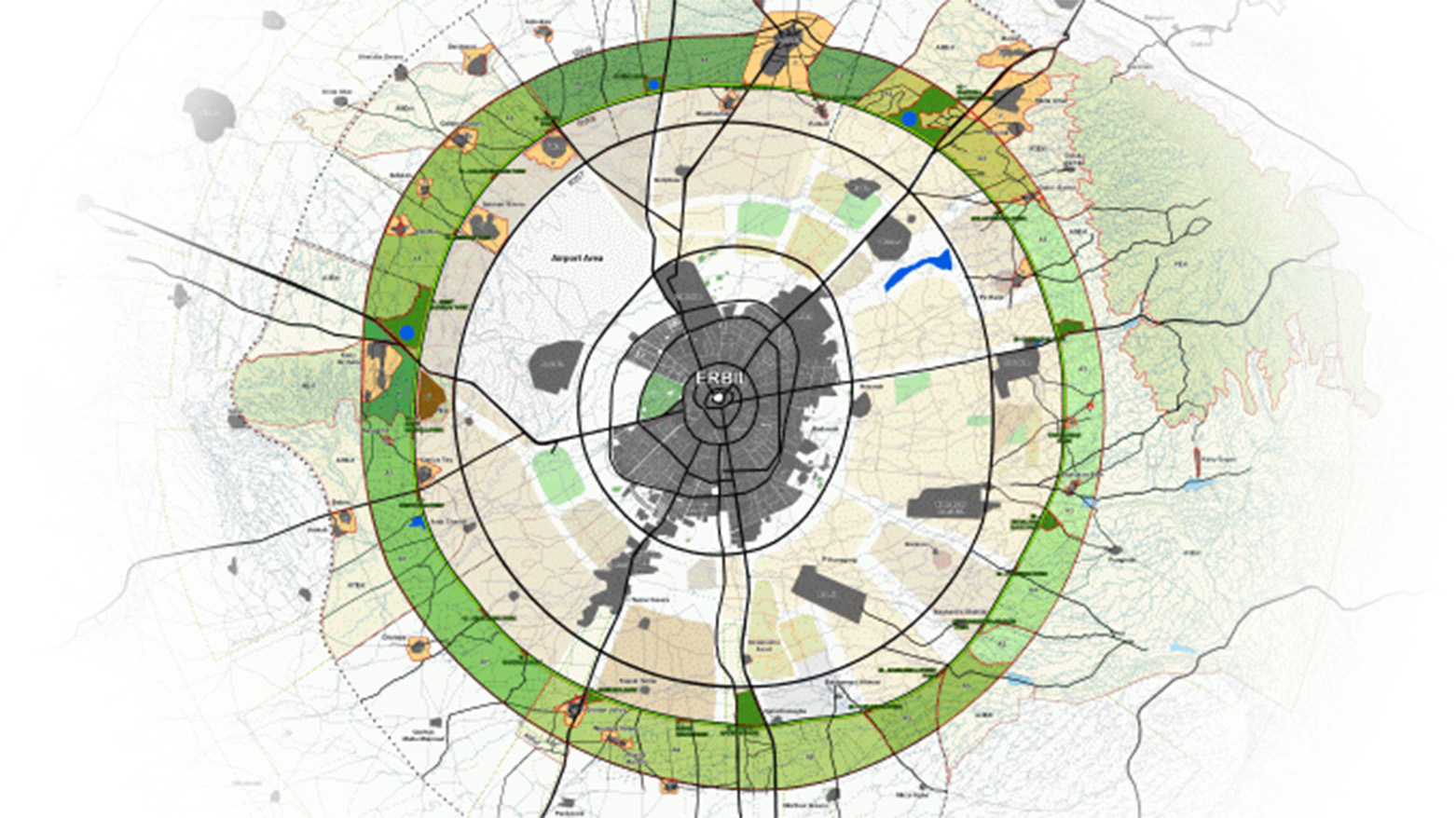Erbil’s Corniche to Become Tourist Hub as KRG Expands Green Vision
Erbil to transform its corniche into a major tourism hub as part of KRG’s green vision. The project includes flood prevention measures, urban beautification, and aligns with the Green Belt and Runaki environmental initiatives.

Erbil (Kurdistan24) – The Erbil district governorate announced plans on Friday to transform the city’s historic corniche near the Five Presidents’ district into a major tourism project, part of a broader government effort to strengthen environmental protection and improve urban infrastructure.
Speaking to Kurdistan24 on September 19, Erbil district governor Nebez Abdihemid said Kurdistan Region Prime Minister Masrour Barzani has allocated two billion dinars for the months of October, November, and December to reinforce flood prevention measures in Erbil.
The governor explained that several committees have already been formed during meetings with the governorate council to oversee the first phase of the project. Funds distributed by the Prime Minister’s office will be shared among all relevant directorates, including sanitation, sewerage, and road protection departments. “This allocation is treated as an emergency budget to ensure the city is equipped ahead of the rainy season,” Abdihemid said, noting that resources would go toward cleaning drains, rehabilitating sewage channels, and installing barriers to direct water flow.
According to Abdihemid, more than 350 kilometers of canals around Erbil have been cleaned and expanded, with dozens of illegal encroachments removed from waterways. Several construction firms responsible for blocking water channels were fined. “Over the past two years, we have taken extensive measures to prevent the deadly floods that previously claimed lives in the city,” he said.
He warned that some shop owners and contractors still obstruct sewage lines and drains by dumping waste materials, exacerbating risks during storms. “If they cooperate, the dangers will be minimized,” he said, calling on residents to respect municipal regulations.
The governor also revealed that illegal fuel and gas tanks placed near residential neighborhoods are being dismantled following a decision made in a recent security and municipal council meeting. “This poses not only an environmental hazard but also a direct threat to citizens’ safety,” he noted, pledging strict accountability against violators.
Turning to the new project, Abdihemid announced that the Erbil corniche, located near the Five Presidents’ district, will be redeveloped into a major tourism site. “This plan, overseen by the Kurdistan Regional Government, will involve coordination between the directorates of tourism, environment, and meteorology to ensure it enhances Erbil’s livability while serving as a landmark attraction,” he said.
The initiative ties into broader urban beautification measures, including major cleaning drives in central markets such as Tayrawa and Sheikhala, where hundreds of workers have been mobilized. Committees have been formed to monitor street cleanliness and remove any illegal sewer blockages, with businesses facing penalties if they fail to comply.
The Erbil corniche project is part of the KRG’s wider environmental strategy, which already includes the flagship Green Belt and Runaki initiatives. Together, these forestry and clean-energy programs are reshaping the region’s environmental footprint.
The Green Belt of Erbil, a vast protective forest under development, will stretch 92 kilometers around the city with seven million olive and pistachio trees. Once complete, it is expected to absorb 210,000 tons of carbon dioxide annually, boosting agriculture and creating thousands of jobs. In parallel, the Runaki Project aims to phase out more than 7,000 private diesel generators by 2026, a transition that will cut 600,000 tons of CO₂ emissions each year — an environmental impact equivalent to planting 24 million trees.
Officials stress that these combined efforts represent a rare example in Iraq of aligning urban development with climate leadership. “These are not just projects, they are a vision for the future,” KRG representatives have repeatedly emphasized.
The government’s multi-pronged strategy — spanning flood control, urban renewal, environmental protection, and tourism development — is designed to position Erbil as both a modern capital and a regional model of sustainable governance.
By investing in infrastructure resilience, dismantling environmental hazards, and expanding green spaces, the KRG aims to transform Erbil into a cleaner, safer, and more livable city, while simultaneously reinforcing its role as a cultural and tourism hub in the Kurdistan Region.